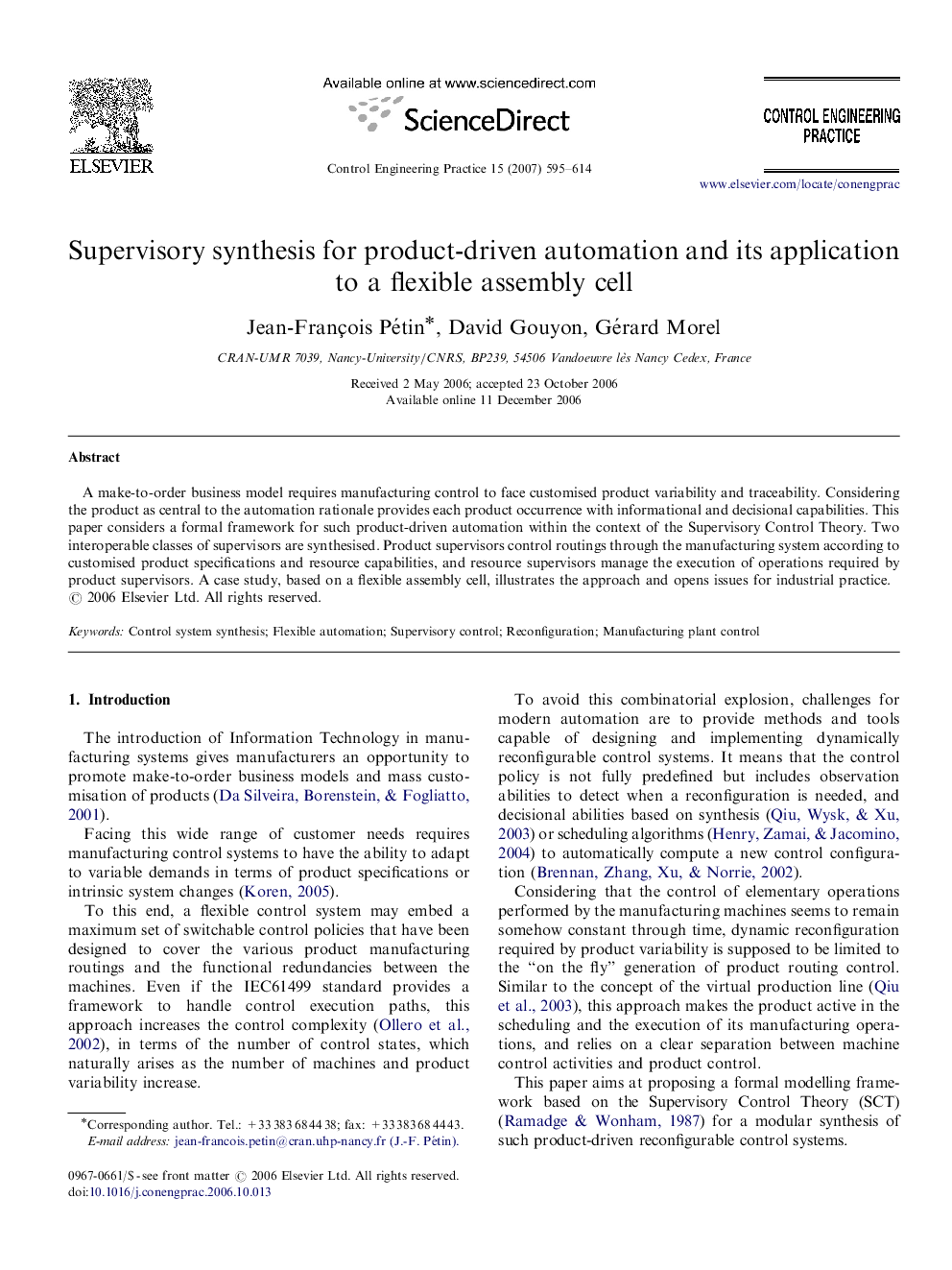| Article ID | Journal | Published Year | Pages | File Type |
|---|---|---|---|---|
| 700573 | Control Engineering Practice | 2007 | 20 Pages |
A make-to-order business model requires manufacturing control to face customised product variability and traceability. Considering the product as central to the automation rationale provides each product occurrence with informational and decisional capabilities. This paper considers a formal framework for such product-driven automation within the context of the Supervisory Control Theory. Two interoperable classes of supervisors are synthesised. Product supervisors control routings through the manufacturing system according to customised product specifications and resource capabilities, and resource supervisors manage the execution of operations required by product supervisors. A case study, based on a flexible assembly cell, illustrates the approach and opens issues for industrial practice.
